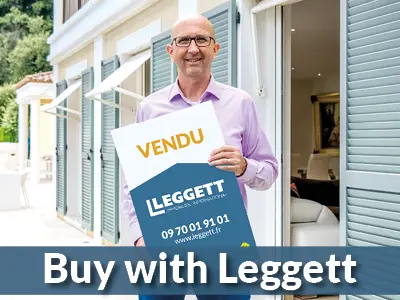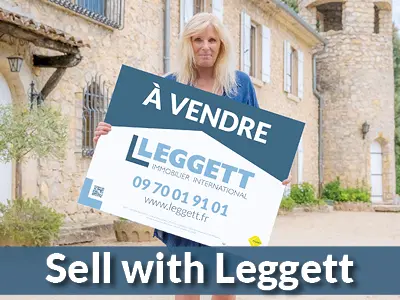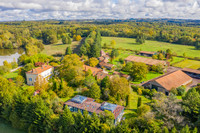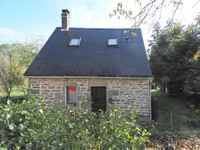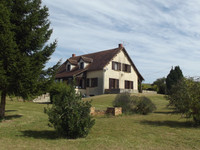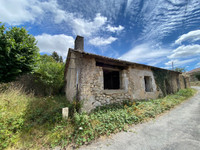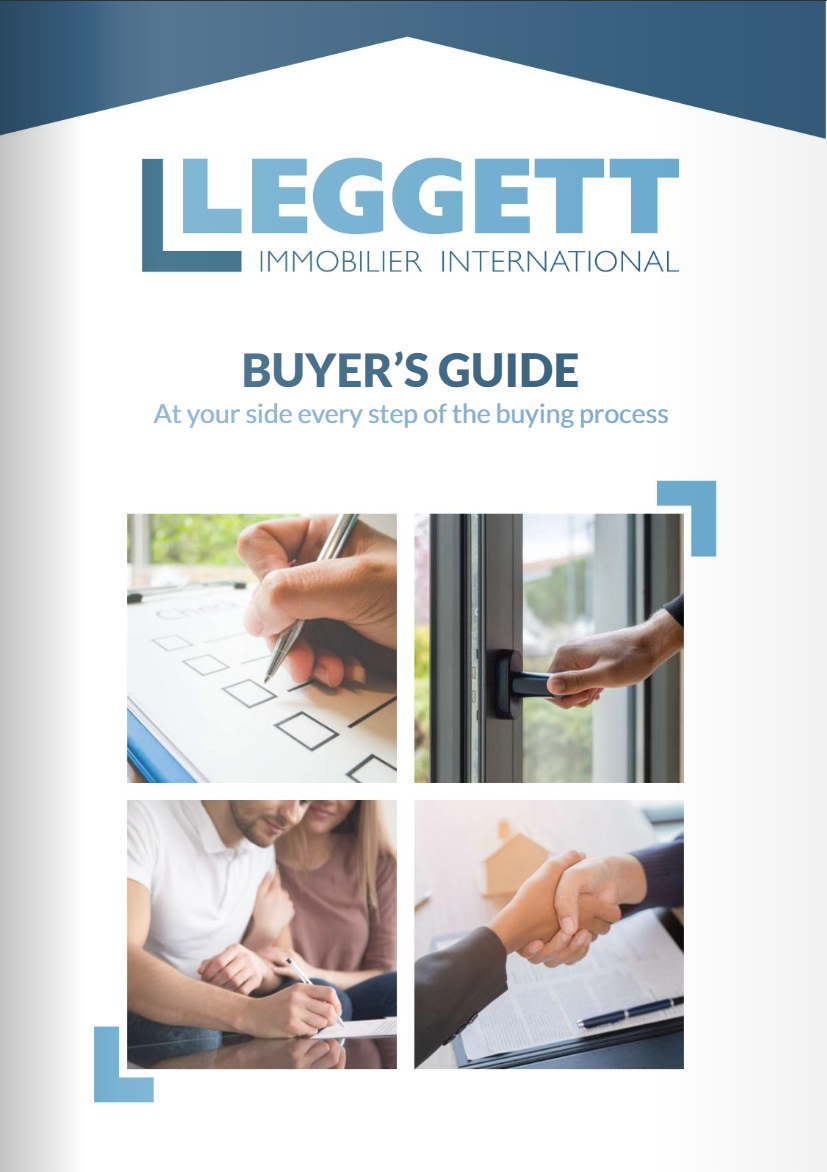Real Estate Guide for Americans Buying in France

Welcome To Our Real Estate Guide for Americans
In this page, we will answer many of the most common questions we are asked, here written especially for Americans wanting to make the exciting move to France, either buying a permanent or holiday home.
Video real estate guide for Americans
MORTGAGES
Americans can get a French mortgage under some circumstances, but it is extremely difficult. The ‘Foreign Account Tax Compliance Act’ (FATCA) is part of the US tax code and was introduced in 2014 to help counter tax evasion. French banks find the cost of complying with this to be prohibitive. Few lenders will entertain considering loans from US clients, unless you have a substantial deposit. Our partners can advise on a case-by-case basis.
RESIDENCY LAWS
The "90 day" rule states that tourists and visitors can spend 90 days out of every 180 in the European Union without the need a visa. So, you can effectively spend 180 days (6 months) in France, but you cannot spend more than 90 successive days in the country and the EU. Should you wish to stay in France for more than 90 days then you will need to obtain a long stay visa. There are different types and details, plus where to apply, are shown below.
TAX COMPLIANCE
Your first step is to identify if you will be classed as a French resident. Details of how the authorities will classify you are outlined below. If you are classed as resident in France, then you will pay taxes under their regime. Your whole household will be considered, and you will be taxed on your worldwide income. The US-France tax treaty means most Americans in France are exempt from double taxation. You will find a copy of the US-France, Estate Tax Treaty here .
Do many Americans buy real estate in France?
Yes indeed, and we saw a huge increase in this number last year. American buyers now account for over 3% of all overseas buyers of French property.
In fact, for Leggett Immobillier, they were our fourth most active nationality (after the French, British and Dutch).
- There were three primary reasons:
- the quality of life on offer
- the incredible value for money that French property offers
- and the strength of the dollar compared to the euro
Leggett has a number of American agents, spread across France – they cover all of the most popular areas including Paris, the Alps and the Cote d’Azur.
The success of programmes such as Emily in Paris has also boosted enquiry levels. At the high end our Prestige site (link) has seen visitors rise by 113% since the programme came out, with the biggest increase coming from New York. France has one of the safest, most stable, and best regulated, property markets in the world, which means that our American clients can buy with both their heart and their head.
What are the purchase costs of French property?
There are no hidden costs. The realtor’s fees will be included in the adverts. On top of these you should budget around 6% for the Notaires fees, searches etc (around 4% if buying a newbuild). Both of these costs will be itemised in the contracts you sign. There should be no other purchase costs other than local property taxes.
What are the steps involved when buying real estate in France?
The process involved is comprehensively set out in our step by step guide to buying a property in France, and you can download the PDF guide opposite.
In essence, once you have found your dream property in France you make an offer, via your realtor. They should be able to advise you on current market value. Once the negotiations are finished, and your offer is accepted then an initial contract is drawn up (the compromis de vente). You will also be given a full dossier, showing the results of compulsory tests that have been carried out on the property. These include energy efficiency levels, but do not include a full structural survey. Both parties sign the compromis de vente, and you can do this electronically, from the USA. You will also be asked to send a deposit to the Notaire, which they will keep in a secure “client account”. This usually ranges between 5-10% of the purchase price.
The Notaire will then carry out all of the compulsory searches and ensure that the sale complies with French laws and regulations. This usually takes around 2-4 months. Once this is completed then you will be asked to transfer the remaining balance into the Notaire’s client account. It is best to use an experienced, specialist, foreign exchange trader for this, to get the best rate available and to ensure there are no last minute hitches. All parties will then sign the completion contract (acte de vente). It is possible to do this remotely, although most buyers like to be there in person to collect the keys and, perhaps, share a glass of champagne to celebrate the purchase.
Explore video of our Leggett Realtor Andrew Guck and get some tips on buying real estate in France from Curtis one of our many American buyers
How can Americans get a long-stay visa for France, how hard is it for an American to become a French citizen?
One question that comes up repeatedly from our clients is “do Americans need a visa to travel to France?”
If you are coming on holiday, and will be staying less than 90 days then the answer is usually no. The "90 day" rule states that tourists and visitors can spend 90 days out of every 180 in the European Union without the need a visa. So, you can effectively spend 180 days (6 months) in France, but you cannot spend more than 90 successive days in the country and the EU.
Should you wish to stay in France for more than 90 days then you will need to obtain a long stay visa. There are different types and you should note that you can only apply for one type of visa at a time, so plan carefully as it is very difficult to change the status once in France, you would have to return to the USA to re-apply before returning with the new visa.
If you are coming for longer, or to work, then you will need to contact your local French Embassy. The main embassy is in Washington DC and this link (https://franceintheus.org/spip.php?article330) shows you all embassies across the USA, and which one is nearest to you. The embassies can be found in: Atlanta, GA; Boston, MA; Chicago, IL; Houston, TX; Los Angeles, CA; Miami, FL; New York, NY; San Francisco, CA and Washington, D.C.
The official site for Americans applying for a visa in France, is your starting point, and can be found here (https://france-visas.gouv.fr/en/web/france-visas/). It will tell you, within three minutes, if you do need a visa. If so it will set out the list of supporting documents that you need as well as the associated fees you will need to pay.
This text is taken directly from the official French site, that lays out the rules for American citizens looking to move to France from the US:
- For any stay in France exceeding 90 days, you are required to apply in advance for a long-stay visa. In this instance your nationality does not exempt you from requirements.
- Whatever the duration of your planned stay, the duration of your long-stay visa must be between three months and one year. In order to extend your stay beyond the period of validity of your visa, you must apply for a residence permit at a prefecture.
- During its period of validity, the long-stay visa is equivalent to a Schengen visa, enabling you to move around and stay in the Schengen Area outside France for periods not exceeding 90 days over any period of 180 consecutive days, under the same conditions as if you held a Schengen visa.
Long-stay Visa Categories
First check that your nationality or the context of your stay in France do not exempt you from the visa application requirements (visa assistant) and seek information about issuance conditions for a visa that will enable you to:
- Stay for an extended period for tourist or personal reasons;
- Carry out a professional activity;
- Pursue education;
- Join family members.
Once you have lived in France for five continuous years, you may apply for a ‘carte de résident’. This is a renewable permanent residence permit that allows you to live in France for up to 10 years. To become a French citizen you will need to apply for French nationality at your local Prefecture – this is a long-winded process and includes language and cultural tests.

Will I be classified as resident in France?
To be considered as a “resident of France for tax purposes”, you must fulfil the criteria for having your tax residence in France within the meaning of national legislation. This is taken from the official French site:
Determining if your tax residence is in France
You have your tax residence in France if one of the following criteria is met:
- You have your household there or, if you do not have a household, it is the location of your main abode. You have your household in France if you live there most of the time and permanently with your spouse (or civil partner and/or children) or alone. If you do not have a household, the location of your main abode will be established based on your actual presence in France.
- You have a professional activity in France, as an employee of otherwise, unless this activity is secondary. You have a professional activity in France as a primary occupation if you devote the majority of actual time to it.
- The centre of your economic interests is in France. A person who has more income from French sources than income from foreign sources therefore has the centre of their economic interests in France.
These criteria are examined for each member of your household.
Following this examination, if you meet one of these criteria, you have your tax residence in France.
However, a country other than France may, on the basis of its own national legislation, consider that you also meet the criteria to be a resident of that country.
The concept of “resident for tax purposes”, assessed within the meaning of the tax treaty, always takes precedence over that of “tax residence” deriving from the provisions of national legislation.
The status of resident of France for tax purposes
A person who has their tax residence in France and who pays their taxes there may be considered as a French resident.
If a person may be considered as being resident for tax purposes in both France and another country, this conflict can be settled by referring to the “Resident” article of the tax treaty to determine this person’s country of residence.
To settle this conflict of residence, the “Resident” article sets out four criteria to be examined successively:
- Permanent home. The permanent home is any form of accommodation at your disposal and that is reserved for your use (house, flat, furnished room, lent accommodation, etc.).
- Centre of vital interests. The centre of vital interests is determined by analysing your personal and economic ties with each of the two countries.
- Habitual abode. This is a matter of determining the country in which you usually live (physical presence in the country)
- Nationality
This means that it is only following analysis of these criteria that you will be considered as a resident of one or other of the countries.
Tax implications of being a resident of France for tax purposes
If you are a resident of France for tax purposes, you are taxed on your income from French and foreign sources subject to international tax treaties.
What taxes will I pay if I move to France?
Property wealth tax
In 2018 the unpopular wealth tax changed to become ‘Impôts sur le fortune immobilière’ (IFI) which is a far less penal form of taation.
Impôts sur le fortune immobilière is payable on an annual basis, by any household that owns taxable assets worth over the threshold on 1st January that year. There is zero tax to be paid if your taxable assets are less than €1,300,000.
| Assessable net asset values | Percentage applicable |
|---|---|
Below €800,000 |
0.00% |
Between €800,000 – €1300,000 |
0.50% |
Between €1,300,000 – €2,570,000 |
0.75% |
Between €2,570,000 – €5,000,000 |
1.00% |
Between €5,000,000 – €10,000,000 |
1.25% |
Above €10,000,000 |
1.50% |
Unmarried couples will be taxed together for Impôts sur le fortune immobilière. Tax is assessed using the total sale value of assessable assets, although a 30% allowance is made against the value of your main residence.
You can also deduct local taxes, income tax and certain business assets.
Capital gains tax
Capital gains tax on land and buildings is known as Impôt sur les plus values immobilières. Your main home is exempt from CGT. If you sell a second-home, and are tax resident in France, then the applicable basic tax rate is 36.2%. This comprises 19% capital gains tax plus 17.2% social charges.
Income tax
Tax residents pay French taxes on worldwide income, which includes earnings from employment, investments, dividends, bank interest, pensions, and property. The 2022 income tax rates are as follows:
Income tax rate bands and scale rates for 2022 income
| Net income | Tax rate | Tax on band | Cumulative tax |
|---|---|---|---|
Up to €10,777 |
Nil |
||
€10,778 to €27,748 |
11% |
€1,866.70 |
€1,866.70 |
€27,749 to €78,570 |
30% |
€15,246.30 |
€17,113 |
€78,570 to €168,994 |
41% |
€37,073.80 |
€54,186.80 |
Over €168,994 |
45% |
Inheritance tax
If the deceased was tax resident in France, all worldwide assets are within the scope of French inheritance tax. Therefore, even though a beneficiary may be in the USA, the whole of the estate is liable to French inheritance tax.
Can I rent out my French holiday home, when I’m not using it?
Yes and our sister company, Leggett Property Management, may even be able to manage the property and look after your guests. This article shows you how to file your rental income return.
Visit this page to download our PDF Guide for Second Home Owners
What our American Clients Say about Leggett
"I was one of those (from United States) that purchased a house in lovely France, online, during Covid! I cant express how pleased I am with the thourough process and the level of high quality service and helpfulness I received from Leggett! I highly recommend and would do it again! Thank you Leggett Team!"
From Cyndee Bessant
"We found just what we needed in Bordeaux and it would have been very difficult without the precious help of Brad Turner and Simon Liddiard from Leggett Immobilier International. They are very attentive and know how to take into account all our constraints (and in particular our search from New York; we planned 2 days of visits during a quick visit a few months ago...) They are efficient and incredibly flexible! Always going the extra mile!!! A big thank-you !"
Larissa Jounot
Yorich and Gerri's Story
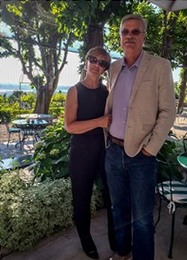
Yorick and Gerri bought their house in South West France in Puisseguin, close to the beautiful vineyards of Saint Emilion.
Yorick is American and Gerri his wife is a UK expatriate who live in Oregon near the famous Pinot vineyards, who were drawn to the idea of buying a house in South West France in Puisseguin, close to the beautiful vineyards of Saint Emilion. “We’ve travelled all over the world but keep coming back to France!” says Gerri, “we love the quiet ease of the town we are going to live in”. So with their children having finished college, they started talking about the possibility of moving to France. They are hoping this will be a permanent move, retiring in France, but they may need to adjust a few things once the outcome of Brexit is fully clear.
Yorick and Gerri's Top Tips!
1.“The buying process is quite complex, so make sure you have get a very good agent who speaks both French and English” says Yorick.
“Leggett Agent Margret Koenen” Gerri said “was superb, and so patient. Margret has become our friend and not just a business partner;
she negotiated for us through so many of the issues, putting us in contact with the right bankers, builders and even gardeners.
We are indebted to Margret as without her, there is no way we could have managed this.”
2.WINE! and lots of it! Buying a home in France is a labor of love. But so worth it!!
SIGN UP WITH US
Long standing favourite places for American buyers are




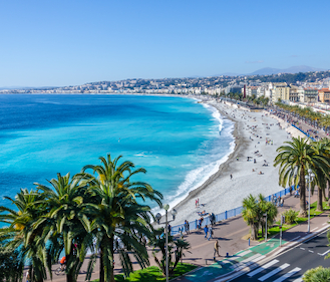
Paris, PACA, and the Alps. However, in the last six months Leggett has also sold to US buyers in:
Aquitaine, Midi Pyrenees , Centre Brittany, Limousin, Languedoc Roussillon, Pays de la Loire, Poitou Charentes.
LEGGETT AGENT : Michele Jones

Michele is based in the French Alps, she was born in Florida and raised in the US Airforce, during which time she moved and changed countries every two years until her father's retirement.
I was very fortunate in having such a rich experience of different cultures says Michele. I came to Courchevel in 1990 for a 2 week ski holiday and never left! I absolutely love this place and have never looked back!










